“My degenerative spine disease was impacting my quality of life, and I was in so much pain every day. I had every non-surgical treatment option available – homoeopathic, ayurvedic, allopathic, everything! Finally, the doctors here recommended I undergo spine surgery, and I am so glad I followed their advice. Now, post-surgery, I can now enjoy life again without constant pain and discomfort. Thank you so much.
- Home
- Hospitals
- Our Expertise
- 24/7 Services
- Medical Imaging Services
- Orthopedics Department
- Cardiology Department
- Dental Department
- Gastroenterology Department
- General Medicine Department
- Neuro Science & Spine Department
- Plastic & Reconstructive Surgery Dept
- Pulmonology Department
- Urology & Nephorlogy Department
- Department of Anaesthesia
- Patient Services
- Doctors
- International Patients
- Homecare Services
- Orthotic & Prosthetic
- Careers
- Contact
Neuro Spine
Disease Treatment
The spine is responsible for supporting our entire body, and it can impact our ability to move, stand, and even breathe when an illness compromises it. The pain can be chronic, severe, and debilitating, making it difficult to perform even the most basic daily activities.
Restore your spine, and restore your quality of life with our leading Neurologists and Spine Surgeons at HOSMAT Hospitals, Bengaluru.
At HOSMAT, #YourLifeMatters
Why Choose HOSMAT?
3rd Gen Automated Robotic Knee Replacement System
24-hour Accident & Trauma Care
State-of-the-Art Technology & Medical Equipment
One of the Lowest Infection Rates in India
3 Hospitals, 500 Beds, 28 Operation Theateres across Bangalore, India
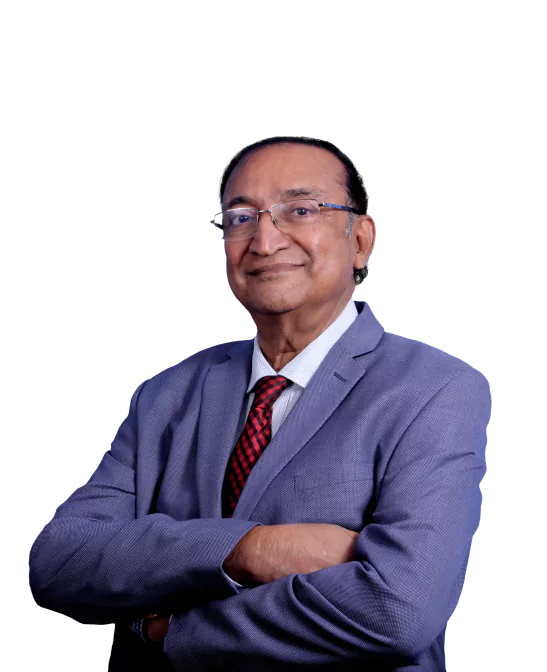
Degenerative Spine Disease
OVERVIEW
SCREENING & DIAGNOSIS
TREATMENT
BENEFITS
PREVENTION
OVERVIEW
Degenerative spine disease, or degenerative disc disease, is a common condition when the discs in the spine wear down over time due to age, injury, or repetitive strain. This wear and tear can lead to various symptoms, including pain, stiffness, and limited mobility.
The discs in the spine are designed to absorb shock and provide flexibility, but as they degenerate, they can become less effective at their job. This can lead to pressure on the spinal nerves, which can cause pain and other symptoms in different parts of the body.
It’s important for individuals experiencing symptoms of degenerative spine disease to seek medical advice from a healthcare professional to determine the best course of treatment.
SCREENING & DIAGNOSIS
Degenerative Spine Disease Diagnosis involves several medical history, physical examination, diagnostic testing and screening.
MEDICAL HISTORY
To rule out any medical history, the doctor will ask questions about the patient’s symptoms, including when they started, how severe they are, and if any factors alleviate or induce them. The doctor will also ask about previous injuries or conditions contributing to the symptoms.
PHYSICAL EXAMINATION
During the physical examination, the doctor will evaluate the patient’s posture, gait, range of motion, and muscle strength. They may also perform specific tests to check for nerve function, such as sensation and reflexes in the affected areas.
DIAGNOSTICS
Diagnostic testing and screening for patients may be necessary to confirm the diagnosis and determine the severity of the disease. This may include imaging tests such as X-rays, MRIs, CT Scans, etc. These tests help identify any structural abnormalities in the spine, such as bone spurs, herniated discs, or spinal canal narrowing.
To determine any further nerve damage or compression, the doctor may also order nerve conduction studies or electromyography (EMG)
The doctor can diagnose degenerative spine disease and develop an appropriate treatment plan based on the results. It is essential for people experiencing symptoms of degenerative spine disease to seek medical advice from the best spine and neuro doctor to receive an accurate diagnosis and appropriate treatment.
TREATMENT
Degenerative spine disease can be managed with various treatment options, depending on the severity of the disease and the patient’s symptoms.
Surgery may be required to relieve the stress on spinal nerves and improve spinal mobility. Surgical spine disease treatments include spinal fusion (TLIF & PLIF), laminectomy, or discectomy.
TLIF (Transforaminal Lumbar Interbody Fusion) & PLIF (Posterior Lumbar Interbody Fusion)
Transforaminal Lumbar Interbody Fusion (TLIF) and Posterior Lumbar Interbody Fusion (PLIF) are surgical procedures used to treat spinal conditions that cause lower back pain. However, there are some differences between the two procedures.
Approach: The primary difference between TLIF and PLIF is the surgical approach. TLIF is performed through a smaller incision and from a different angle than PLIF. In TLIF, the surgeon approaches the spine from the side, whereas in PLIF, the surgeon approaches from the back of the body.
Vertebrae: The vertebrae targeted by the two procedures are also different. In TLIF, the surgeon typically removes only one vertebral body and disc; in PLIF, the surgeon removes both vertebral bodies and the intervening disc.
Implant size: The implant size used in the two procedures may also differ. The implant used in TLIF is typically smaller than that used in PLIF because of the limited space available through the side approach.
Fusion rate: Studies have suggested that the fusion rate is higher with PLIF than with TLIF. This may be because PLIF provides a larger bone growth and fusion area.
BENEFITS
Benefits of Spinal Fusion Surgery
Surgical procedures can benefit individuals with certain neuro-spine conditions that cause lower back pain. Here are some of the potential benefits-
- Reduced Pain: Spinal Fusion Surgery can help reduce pain in the lower back and legs by stabilising the spine and reducing pressure on nerves.
- Improved Function: By reducing pain and increasing stability, spine surgery can improve mobility and overall function for individuals with lower back pain.
- Prompt Recovery: Spinal fusion is a minimally invasive procedure that typically requires a shorter hospital stay and recovery time than traditional open surgery.
- Reduced Risk of Complications: Since spinal fusion surgery is minimally invasive, there is less blood loss and a lower risk of infections and complications related to anaesthesia.
- Improved Quality of Life: For people suffering from chronic lower back pain, spine surgery can offer a significant improvement in quality of life by improving mobility and reducing pain.
Note: The conceivable benefits of surgery for spine diseases vary for different conditions and the patient’s overall health. Our neuro and spine surgeons at HOSMAT Hospitals, Bengaluru, evaluate the severity of a patient’s condition and determine whether surgery is an appropriate treatment option.
PREVENTION
Several preventive measures can help reduce the risk of developing degenerative spine disease or slow down its progression:
- Exercise regularly: Exercise can help keep the spine healthy and strong. Engaging in low-impact activities such as walking, swimming, or cycling is vital to reduce stress on the spine.
- Maintaining a healthy weight: Being overweight stresses the spine, accelerating the degenerative process. Maintaining a healthy weight can help reduce the risk of developing spine-related conditions.
- Practice good posture: Poor posture can stress the spine and increase the risk of degenerative spine disease. Practising good posture while sitting, standing, and lifting heavy objects is essential.
- Avoid smoking: Smoking can cause damage to the spinal discs and increase the risk of degeneration.
- Eat a healthy diet: A diet rich in fruits, vegetables, and lean proteins can help promote spine health by providing the necessary nutrients for bone and tissue health.
- Manage stress: Chronic stress can cause tension and tightness in the neck and back muscles, which can contribute to spine-related conditions. Practising stress-management techniques such as meditation or yoga can help reduce stress and prevent spine-related issues.
- Take breaks: Taking breaks from sitting or standing for long periods is vital to avoid putting too much stress on the spine.
Incorporating these preventive measures into one’s lifestyle can reduce the risk of developing degenerative spine disease or slow down its progression. However, consulting a healthcare professional before starting any exercise or dietary program is essential.
Patients Testimonials
At HOSMAT #YourLifeMatters


“I had tried various non-surgical treatments for my chronic back pain for years but found no relief, so I underwent TLIF (Transforaminal Lumbar Interbody Fusion) surgery. I am so glad I did. The procedure was a success, and I can now resume my daily activities without any pain or discomfort. I cannot thank my surgeon and the medical team enough.”

Since my surgery, the pain in my back has reduced, and my mobility has greatly improved. I am grateful for my surgeon and the medical team. Before my Posterior Lumbar Interbody Fusion surgery, I was in so much pain that I could not work or perform daily activities. “

“I was worried that my degenerative spine disease would confine me from my job and make me dependent on my family. So I went ahead and finally decided to undergo spine surgery. The surgery was successful, and all the pain I suffered was gone. I can now live a full and active life again. I cannot thank the surgical team enough for giving me a pain-free life.”

“My chronic back pain was affecting my work and personal life, and I knew I needed to do something about it. After undergoing Transforaminal Lumbar Interbody Fusion surgery, I can perform daily without pain or discomfort. The procedure was a success, and I am grateful for my skilled surgeon and the medical team who provided exceptional care.”
Our Healthcare Experts
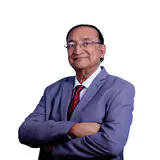
Dr. Thomas Chandy
Chief Orthopedic Surgeon
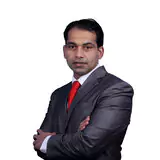
Dr. Krishna Kumar M.S.
Consultant Orthopedic Surgeon
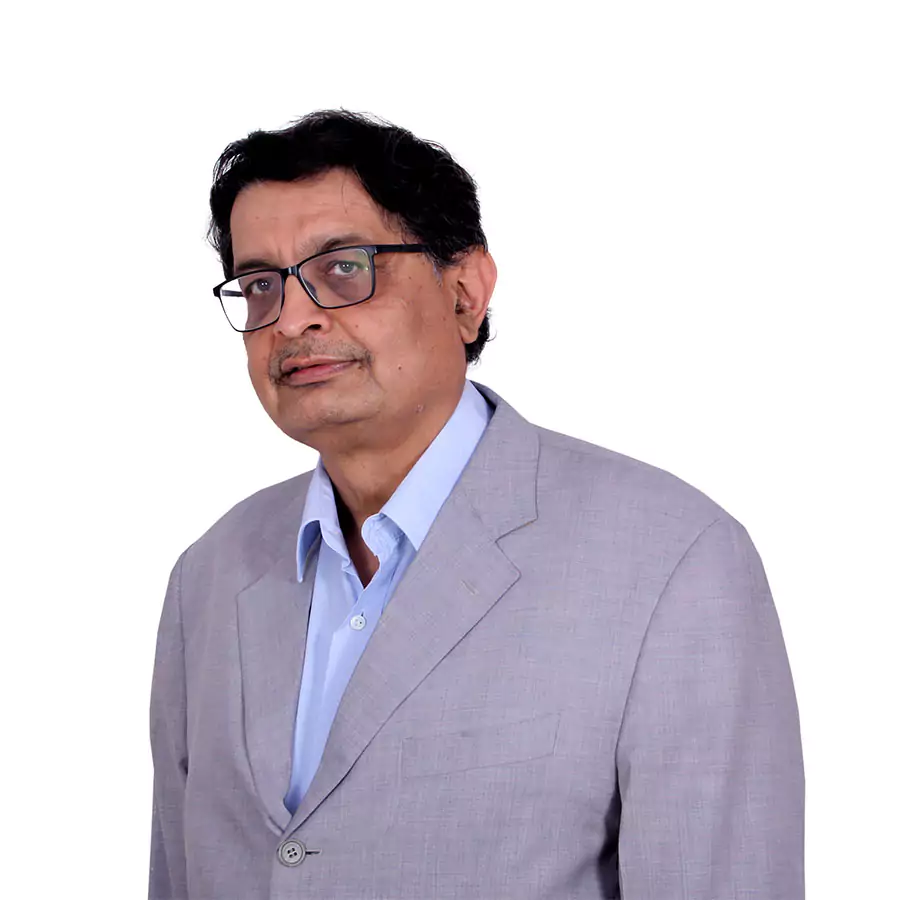
Dr. Krishna Prasad
Consultant Orthopedic Surgeon
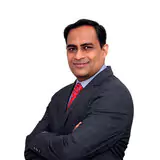
Dr. Vijay Girish
Consultant Orthopedic Surgeon

Dr. Kannan K. Kumar
Consultant Hand Surgeon
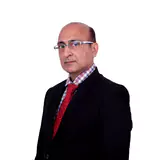
Dr. Chetan A
Consultant Orthopedic Surgeon
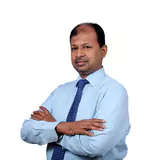
Dr. Chetan Rai D.
Consultant Orthopedic Surgeon
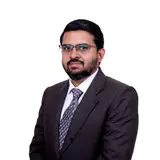
Dr. Noel Naleen Kumar
Consultant Orthopedic Surgeon (Paed)

Dr. Harsha Vardhan
Consultant Orthopedic Surgeon
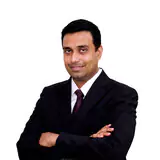
Dr. Chetan Rasquniah
Associate Consultant Orthopedic Surgeon
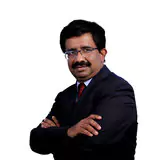
Dr. Deepu
Sr. Consultant Plastic & Cosmetic Surgeon
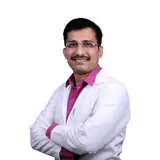
Dr. Vithal
Consultant Plastic & Cosmetic Surgeon
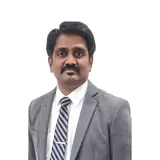
Dr. Bhushan Chittawadi
Consultant GI & General Surgery
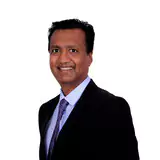
Dr. Bhushan Joseph
Sr. Consultant Neuro & Spine Surgeon
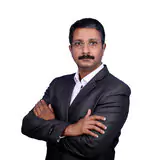
Dr. N.C. Prakash
Sr. Consultant Neuro & Spine Surgeon

Dr. Dinesh S
Consultant Pulmonology
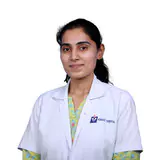
Dr. Fathima Ibrahim
Conservative Dentist and Endodontist
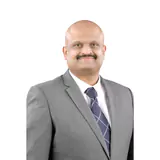
Dr. Ananya Puttaraju
FAQs
Since the inception of HOSMAT Hospitals in 1994 to completing 30 Years of health care Excellence, we have served over 1.5 Million satisfied patients across the Globe.
HOSMAT stands for Hospital for Orthopedics, Sports Medicine, Arthritis & Trauma and expands into providing Affordable Patient Care with Excellent Medical Precision!
Today, HOSMAT has grown into 3 Hospitals across Bangalore with a strength of 500 beds, 28 dedicated Operation Theatres, State-of-the-Art technology and 24/7 Trauma Care, making us the Largest group of Orthopedics Hospitals in India and the Best Multispeciality Hospitals in Bangalore.
We believe, At HOSMAT, #YourLifeMatters.
Copyright 2024 HOSMAT HOSPITALS

